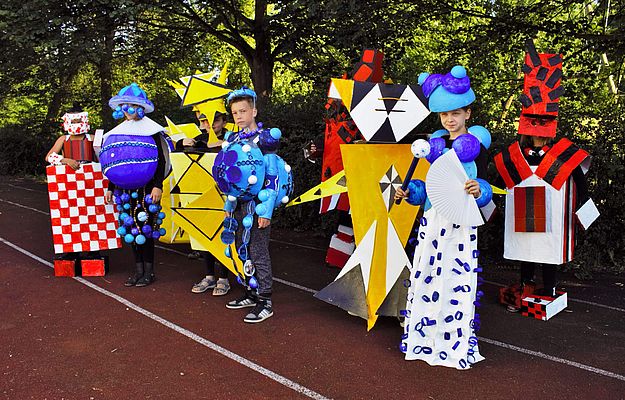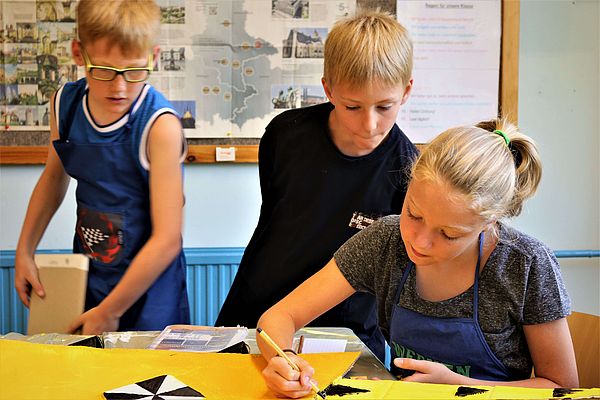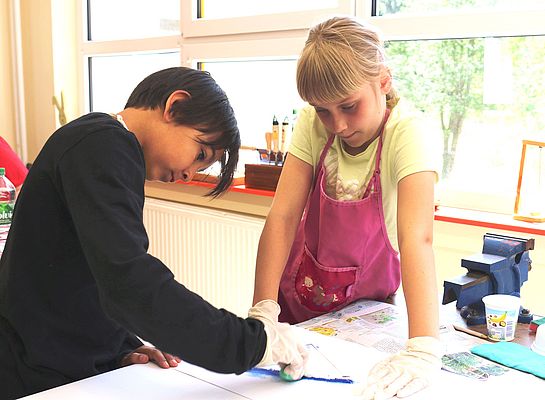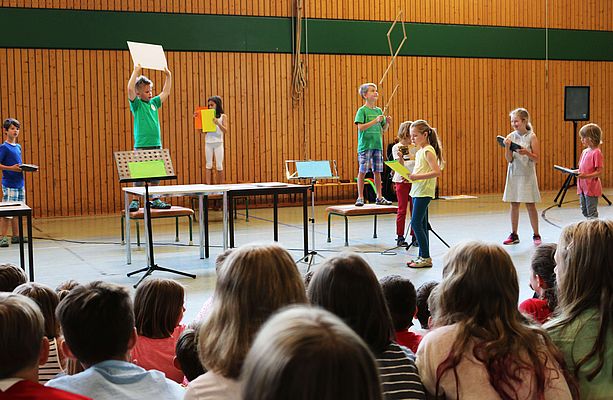Two Times Three is Four
Project week Colour at the Bauhaus
Working from Kandinsky's theory of colour and form at the Bauhaus, 270 pupils of all grades from the primary school in Dessau-Ziebigk researched the three primary colours red, yellow and blue and their relationship to the three geometric forms, circle, triangle and square. A public presentation marked the end of the project week.
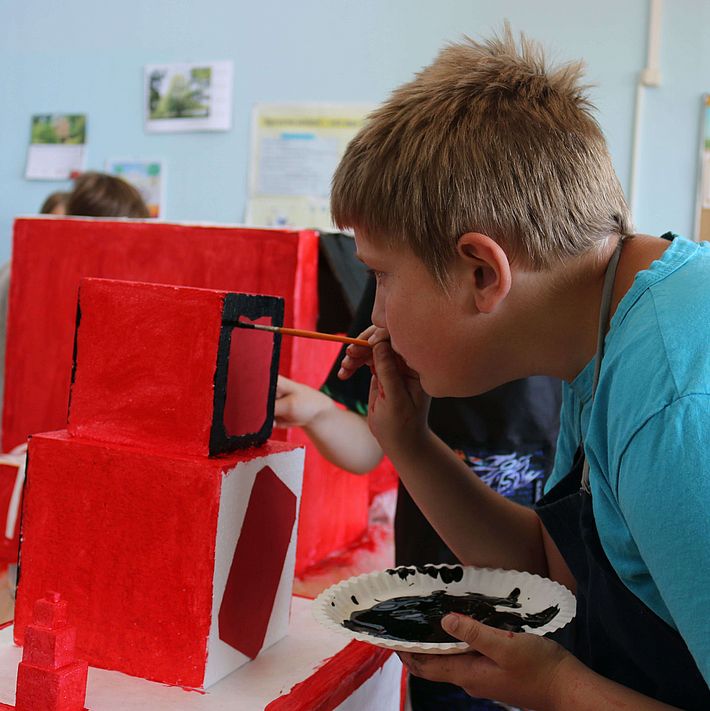
Grundschule Ziebigk
Margitta Gartmann / Teacher responsible for the project
_______________________________
Artistic supervision
Franziska Bilharz, Katja Schröpfer, Juliane Blech, Alexander Lech, Claudia Trautmann, Katharina Guhlmann, Erwin Stache, Benjamin Stache, Annette Funke, Christian Wenzel, Josephine Cyranka, Karoline Peisker / artists, designers on the spot
_______________________________
June 2017
Silke Wallstein / Bauhaus Agent
Food-artists and typo-poets
Red, yellow, blue. Circle, triangle, square – the pupils were free to experiment with these basics of Kandinsky's theory of colour and form. Food-artists examined the effect of colours on food and created edible and drinkable works of art using watercolour painting and blue-printing. Colour-sound researchers developed experimental space-sound pieces. Colour-toners transferred colour to body movements and composed a colour song. Typo-poets designed their own letters from circles, triangles and squares and printed them on stools using stencil printing techniques. Word-creators transformed colour impressions into words and texts. Costume designers created large-scale, cheeky and cheerful costumes.
Following the educational principles of the Bauhaus, participatory and artistic research methods were applied to try out age-appropriate, multi-perspective approaches to the topic of colour. The workshops were a method- and content-related enrichment for teachers, pupils and their families. Some workshop formats will be suitable in the long term as regular outreach opportunities in the museum. These include the sound objects by the colour-sound researchers, which make visual elements of the Bauhaus both audible and haptic.
(SW 2017)
